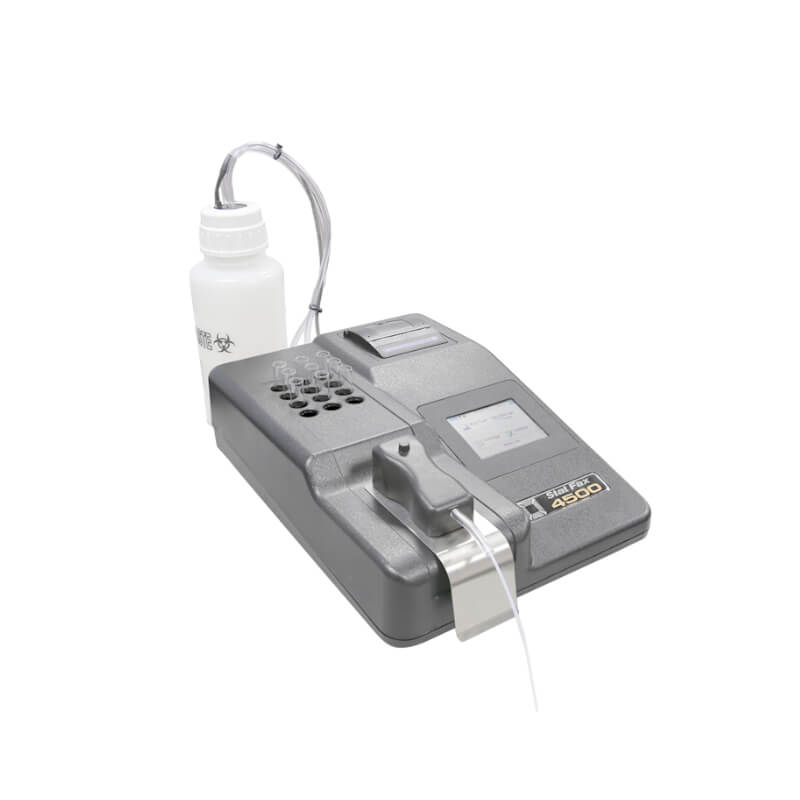What Is a Biochemistry Analyzer?
An instrument known as a biochemistry analyzer measures a particular chemical composition in bodily fluids by applying the photoelectric colorimetric principle. It is a type of blood chemistry analyzer that, by identifying the chemical composition of blood, can assist medical professionals in diagnosing conditions related to kidney, liver, blood sugar and lipid, coagulation, electrolyte, etc. Medical professionals' diagnosis and treatment are based on the results of biochemistry analyzer machines.
The Clinical Chemistry Analyzer Principle
What, then, is the biochemistry analyzer's operating principle? The completely automated biochemistry analyzer is an optical analysis device. In essence, the first generation of biochemical analyzers is a spectrophotometer. Subsequently, biochemical analyzers that were semi-automated were gradually introduced at this point.
The fully automatic biochemistry analyzers use is quite common. The basis of the chemical analyzer apparatus is spectrophotometry, or the selective absorption of light by a material. Beer's law continues to serve as the foundation for the biochemistry analyzer principle.
You can buy a clinical biochemistry analyzer online from us—we are just a few clicks away!
How Does a Biochemistry Analyzer Function in Sequential Steps?
The analyzer typically works in the following steps:
- Sample preparation: To facilitate the chemical reactions, the biological sample is first processed by centrifuging it to remove any cells or debris. It is then diluted or treated with particular reagents.
- Sample analysis: The prepared sample is put into the analyzer, which has several cuvettes or channels inside of it. A distinct signal is produced by the reaction of particular reagents and enzymes with the material in each channel, which is typically a change in color, absorbance, or fluorescence.
- Detection And Measurement: To learn the concentration of the target analyte in the sample, the analyzer examines the signal generated by each channel and compares it with a calibration curve. Analyzing known analyte concentrations in comparable environments yields the calibration curve.
- Data Analysis: Each analysis's findings, including the analyte's concentration and any relevant reference ranges or interpretations, are reported by the analyzer.
The interaction of the biological sample with particular reagents, as well as the identification and measurement of the ensuing chemical processes, form the basis of a biochemistry analyzer's operation. This procedure makes it possible to quantify various biochemical parameters in biological fluids precisely and accurately, which can help with disease and condition monitoring, diagnosis, and therapy.
NE LabSystems has the best medical product, so contact us now to learn about the biochemistry analyzer price.
What Option Does a Biochemistry Analyzer Have?
Compared to conventional analyzers, some devices provide various analysis options. The modern biochemistry analyzer provides assistance in immunology, endocrinology, toxicology, and oncology. There are models available that can perform up to one hundred different types of analyses. Systems that handle clinical chemistry and immunoassay samples simultaneously are also available to optimize workflow. Among other things, this removes the requirement for handling samples between modules.
NE LabSystems provides the best biochemistry analyzer for sale. You can explore our website to buy biochemistry analyzers at affordable prices.

